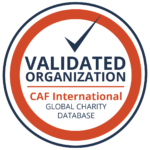Empowerment through agriculture
(Chilli fields, “One Home One garden” and Black Soldier Fly projects)
View the PDF version of this Proposal
Project outline:
This Project is aimed at establishing a sustainable solution for some of the most disadvantaged and vulnerable communities in Mauritius. This will be achieved by education and training in agriculture. Particularly organically grown chillies, as well as establishing a sound understanding and knowledge of growing a variety of foods.
The beneficiaries will be taught about the principles of effective compost manufacture. This product will be used during the project and sold to build revenue in the project.
The chillies and other produce like coriander, lemons, garlic and ginger will be grown in the gardens and then sold.
Parallel to the practical farming training, each candidate will be taught a foundational course on simple business skills.
This project will establish a positive, economic independence, nurture confidence and self esteem and offer communities dignity as they build their lives.
Problem:
- There has been an escalation in unemployment in Mauritius, largely due to Covid. Hope House has been actively working in the Cotteau Raffin community for the past 3 years.
- We have mainly been involved in providing septic tanks and toilets to homes that had none. Giving dignity to the people and restoring a clean and hygienic environment.
- This has enabled us to build relationships and trust with the people living here to improve their lives further and we now have an opportunity to take another step together.
- We have also been in consultation with Karl Le Marque from the village council as well as Bruneau from Amour et Espoir to discuss our planned project and the benefits to the community.
- The people in this community live in extremely difficult circumstances. Poverty, drug and alcohol abuse and unemployment is rife with no hope of anything changing.
Solution:
- This project will provide various work opportunities for people
living here. - As we work and mentor especially younger
people, hope of a better future can grow and we believe
that this situation can be turned around. - The project will create a positive environment with
some responsibility and accountability required from the
participants as we work together.
Planned activities:
- Provide training and education for unskilled people in organic farming methods.
- Plants are grown in 15 litre grow bags to control soil quality.
- Setting up 4 growing areas 200+ chilli plants in each and an area where composting will be taught and compost produced.
- Training 8 farmers organized in teams of 2 who will each take responsibility of an area.
- Watering, weeding, inspecting plants daily for pests, mixing and spraying organic solutions for pest invasion.
- Turning compost, mixing soil to top up and fertilizing using organic fertilizer. It is also our intention to teach them how to make their own fertilizer by installing a worm farm and using the worm tea and casings mixed into the compost to make it even more fertile.
- Hope House has already done a proof of concept on a small scale with 40 plants.
- We have now completed the same with 200 plants at Cotteau Raffin where we have
trained one young farmer (Kenny). - The aim is to now enlarge this and give opportunity to more people.
- They will also be trained to plant other produce that is required.
- All the chillies and produce grown will be sold and the revenue will add to the sustainability of the project going forward.
Expected outcomes of the project:
- Skills transfer in organic farming methods.
- Soft skills learnt through mentoring and accountability.
- Job creation. Economic growth for each family. Alleviation of poverty and opportunity to help people break addictions.
- Food and shelter for families.
- Opportunity for employing others for tasks that need additional manpower.
- Opportunity for those with entrepreneurial flair to be recognized skilled and encouraged.
- We will be working hand in hand on a daily basis with the trainee farmers and as such will be in a good position to know if the planned outcomes are being achieved. The success of the project will be evident by evaluating the progress in terms of the health of the plants and the yield from the fields. This will directly translate into monetary terms. We will also be able to measure the amount of compost produced which is directly related to the effort that is required for this to a success.
“One Home One garden”
Background and needs assessment:
We believe that disadvantaged communities are better helped and sustainably equipped through a Hand Up rather than a Hand Out.
There is an urgent need amongst the poor for the opportunity of consuming healthy nutritious food grown in a natural organic environment, free of Pesticides and Herbicides.
This produce is normally not afforded by the poor because of the perceived high cost associated with cultivating crops without using Herbicides, Pesticides and Chemical Fertilisers.
Goals and objectives of the project:
Our objective is to offer a solution to the food security and poverty crisis for the rural poor to become more self sufficient.
The “One Home One Garden” Project encourages households to start their own food production units.
The aim is to assist households to be able to produce enough food to meet basic household food security needs throughout the year.
Target population:
We have been working with the community of Cote Raffin, near La Gaulette, over the last 6 years and there is a desperate need for people to discover their self worth and purpose. Giving them the opportunity to take ownership of their own garden can assist in uplifting them in the community.
We expect to train people from La Gaulette, Le Morne Village, Case Noyal initially and ultimately as gardens are established go further to where the need is identified in Mauritius and Rodrigues.
Expected results:
Initial training takes 2 days after which people can set-up their own garden. We would monitor the set-up of individual gardens and ensure that the method is adhered to. Seeds or Seedlings will be planted and there is a follow up to ensure the crop is cared for. Certain crops are ready for harvest and consumption within 2 to 3 weeks others take longer.
Activities to be carried out:
To identify interested people in communities who we train how to successfully implement a No Till, Herbicide and Pesticide Free method of growing healthy crops.
Run Training session comprising of Theory and Practical work for groups of up to 18 people.
Once people have been trained and manage their own garden we encourage them to share the knowledge and skills they have learned with others.
Considering that most homes in poor areas don’t have much land to cultivate, we focus on small footprints to grow crops that will supplement a families meal with fresh vegetables. The ongoing monitoring after initial training encourages the sharing of crops between households. Where there is no soil to work in we use a variety of raised beds to plant in.
Black Soldier Fly Project
Background to Project:
The black soldier fly (BSF), (Hermetia illucens), is a valuable insect that has an incredible ability for converting almost any organic waste into useful protein and compost. It produces no harmful environmental effects normally associated with land fill sites.
This provides an ideal opportunity to safely convert the organic waste from hotels, restaurants and domestic waste into a useful and economically viable product.
There is a growing demand worldwide as the larvae are used as alternative protein additives in animal feed, this translates into an inexpensive, clean and sustainable food source.
The BSF is a path to employment and improving household incomes with a readily available resource.
Project outline:
Hope House BSF training project will provide a solution to the organic waste from Hotels, restaurants and even households.
In addition, sustainable work opportunities will be created.
This project is ideal as it is scale-able.
- Build a 5m x 10m structure.
- Source appropriate containers.
- Make and set out equipment as per plan.
- Collaborate with nearby Hotels to take their organic waste in manageable quantities as the demand grows.
- Run proof of concept phase for 6 months.
- Organise training workshops with potential local producers.
- Help them set up small scale facilities and establish viable market for their produce.
Problem:
Almost half of the food we grow and buy doesn’t get eaten.
There is a massive portion of our food that is wasted… Sent to landfills.
While your food sits in a landfill, it produces methane. That speeds up climate change.
Mauritius produces a lot of organic waste from the many Hotels, restaurants and of course every household. Instead of disposing of this in land fill sites it can be safely used and converted into produce that is environmentally friendly and that produces no gasses or other waste.
- Hotels need a solution to their organic waste.
- Feed for chickens and pigs is getting expensive.
- Families are struggling to make ends meet. Ways to make additional income are needed.
- The world is locked in a struggle to produce food, save water and reduce the carbon footprint of every household.
- Traditional forms of animal protein are becoming extremely costly to produce, are using up precious water resources and are contributing negatively to the environment through the emission of greenhouse gasses.
- To produce 1kg of beef requires approximately 20kg of feed and 170x more water than BSF.
- To produce 1kg of poultry uses approximately 7kg of feed and 17 x more water than BSF.
- To produce 1kg of BSF uses 1.5kg of organic waste feed.
Solution:
This process is completely organic and will provide the following:
- Farming insect protein is a sustainable way to produce food while minimising the amount of water used while using up our organic waste.
- To produce BSF requires a very small piece of land compared to the vast land resources needed to farm animal protein.
- The set-up costs are very low.
- Protein that can be sold to chicken and animal feed consumers.
- Protein that can potentially be processed for human consumption.
- Safely convert organic waste into something valuable and useful.
- Provide employment.
- 0% waste as everything in the process is useful.
- Potential for Carbon Credits for the hotels that avoid organic waste going into landfill sites.
Benefits:
- This project will benefit all the stakeholders – trainee farmers, farmers, chicken and pig farmers, workers, Hotels and restaurants, Mauritius environmentally, landfill sites and trainers.
- The project can be started small and grow according to supply and demand needs.
- The project is easily scalable.
- Job creation and entrepreneurial potential that can produce revenue for households and Mauritius.
- Potential to produce high quality protein for human consumption in the future.
Target beneficiaries:
- Unemployed and unskilled people from disadvantaged communities interested in agriculture and training as BSF farmers.
- Current farmers who are unemployed or who desire to diversify.
- Hotels and restaurants.
Activities to be carried out:
Identify a group of up to 6 interested trainee farmers from disadvantaged communities.
Build a 5mx10m roofed enclosure and set up all required equipment/containers etc…
Source organic waste from Hotels and Restaurants in manageable amounts.
Begin training.
Expected outcomes:
- 4 trained BSF farmers who now have a viable and sustainable income source.
- economically viable solution to organic waste from hotels.
- reduced organic waste to land fill sites reducing methane emissions.
- training centre that can be used to train further batches of farmers thereby increasing throughput in the project.
- Viable protein source produced for sale to chicken, pig and fish farmers.
- Additional by product (frass) for enriching input in compost making.

